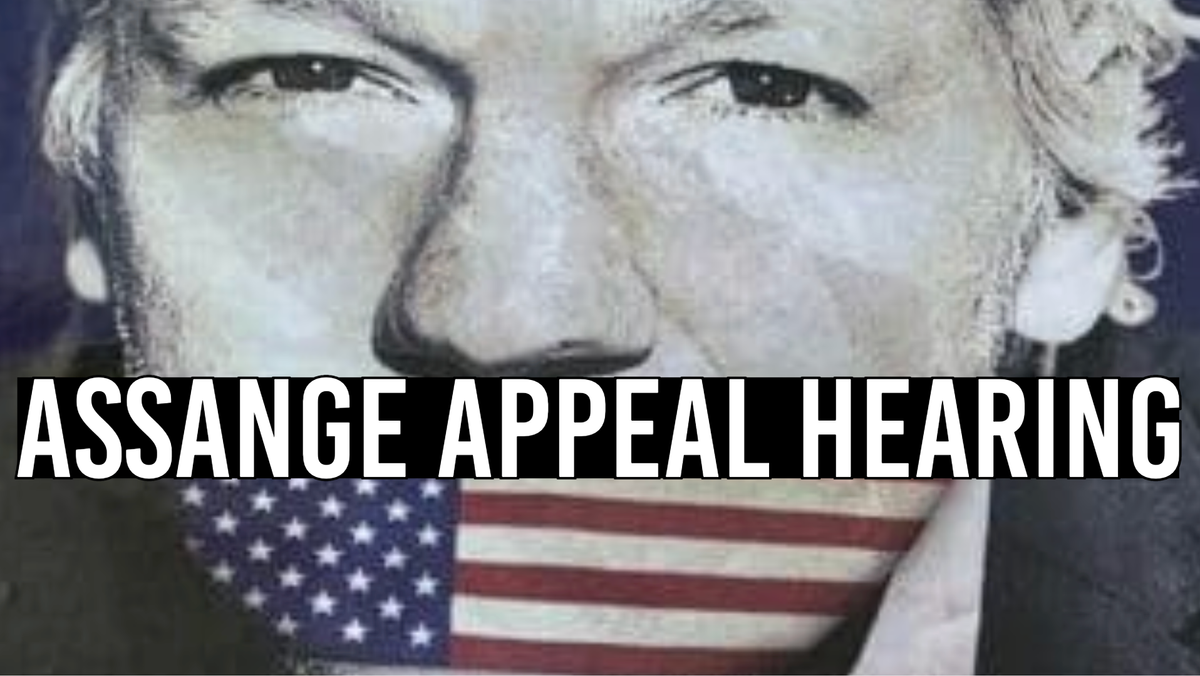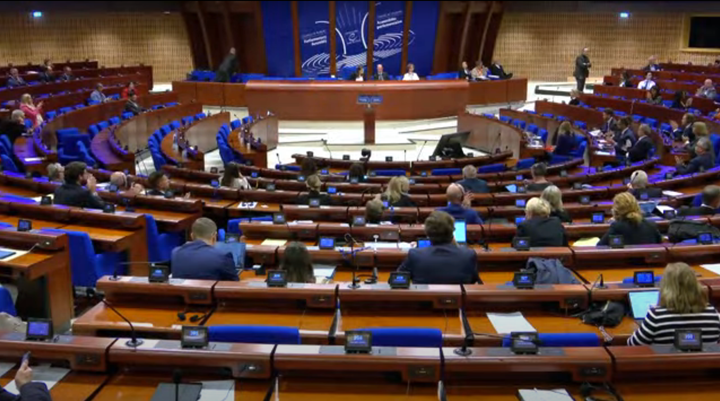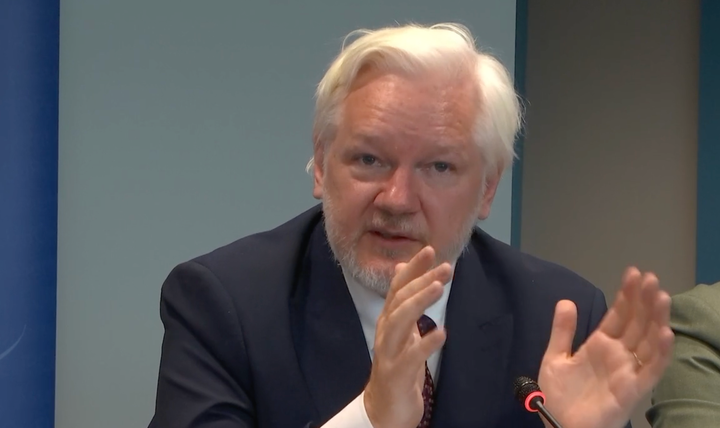UK Appeal Hearing: Assange May Die If Extradited
Although the abusive treatment Assange will likely endure in U.S. custody isn't a focus of this upcoming appeal hearing, it still matters.

Editor’s Note: The following was published as part of a “Countdown To Day X” series highlighting key aspects of WikiLeaks founder Julian Assange’s request to appeal his extradition to the United States.
The risk of cruel and inhuman treatment that WikiLeaks founder Julian Assange faces if confined in a United States jail or prison was already litigated, and in the British legal system, the U.S. government won.
In December 2021, the British High Court of Justice—the same court that will now determine whether to grant Assange a full appeal hearing—overturned District Judge Vanessa Baraitser’s decision that blocked extradition. Baraitser had concluded extradition would be oppressive given Assange’s “mental condition.”
The High Court of Justice was “satisfied” with so-called diplomatic assurances from the U.S. government that Assange would not be mistreated in jail or prison. “There is no reason why this court should not accept the assurances as meaning what they say,” the High Court added.
Assange asked the U.K. Supreme Court to allow an appeal, and on March 14, 2022, the request was rejected. The court maintained that Assange had not raised “an arguable point of law.”
Still, given the frailty of Assange’s mental and physical health and that this may be his last public hearing in the U.K., it is crucial to understand how the outcome of this particular hearing could determine whether Assange lives or dies.
Baraitser ruled [PDF] that the “detention conditions” in which Assange is likely to be held are relevant to his risk of suicide. She determined that there was “a real risk” that he would be subject to restrictive “special administrative measures,” or SAMs, if sentenced to a U.S. prison.
Even more specifically, Baraitser was convinced that Assange would be designated to ADX Florence in Colorado, a “Supermax" facility notorious for its conditions and their effects on prisoners with mental illnesses.
A report from the Corrections Information Council, which described conditions at ADX Florence in April 2017, helped Baraitser arrive at her decision. It mentioned that psychological services were limited to "self-help packets and information provided by video." Only five individual therapy slots were available and participants in group therapy were kept in "individual cages and remained shackled.”
"It expressed concern that those self-harming or who have attempted suicide were described by staff as 'just getting attention many times' and that 'inmates who are disciplined are less likely to commit self-harm again,’ Baraitser added. Rates of documented instances where prisoners threatened bodily harm were nearly nine times the average rate in U.S. prisons.
“The report documents one inmate reporting that he suffered from depression and bipolar disorders but who was taken off medication in January 2017, following which he attempted suicide, and by April 2017, he had yet to receive any medication. It documents another inmate being taken off psychotropic medication following his attempted suicide by swallowing pills, Baraitser recounted.
Despite the troubling evidence presented by Assange’s legal team, Assistant U.S. Attorney Gordon Kromberg did not expressly assure the court that Assange would not be placed in SAMs if extradited.
When the U.S. government needed to save the case, officials offered a diplomatic assurance that Assange would not be placed in SAMs.
Except the assurance had a glaring loophole. If Assange committed a “future act” that “met the test” for SAMs, the U.S. would designate him for such restrictive confinement conditions. Officials did not specify what type of acts might justify abandoning this assurance.
Procedurally, the CIA, which allegedly plotted to kill, poison, or kidnap Assange while he was living in Ecuador’s London embassy, could provide input to Attorney General Merrick Garland that would influence whether SAMs were imposed.
The U.S. government also pledged that Assange would not be designated for ADX Florence. Yet similar to the assurance to not impose SAMs, officials indicated if Assange commits a “future act” that meets the "test for such designation” he could still be confined in a maximum-security prison.
Significantly, the assurance left open the possibility of imprisoning Assange in a Communications Management Unit (CMU) at Federal Correctional Institution Terre Haute in Indiana or U.S. Penitentiary Marion in Illinois.
In October 2021, the U.S. Bureau of Prisons designated drone whistleblower Daniel Hale for a CMU, even though a federal judge, prosecutors, and defense attorneys had agreed to send him to Federal Medical Center Butner in North Carolina, a low-security facility where he would receive attention for post-traumatic stress.
Joel Sickler, the head of a criminal defense litigation support firm who testified as an expert on federal prisons during the extradition trial, declared, “For any inmate, and many of my clients, the level of monitoring of their lives can—and often does—cause distress leading to significant levels of depression. In my experience, those inmates who are placed in CMUs experience this exponentially.”
The visitation policy for prisoners designated for a CMU is harsher than the policy for SAMs. If held in a CMU, Assange’s visits with his wife Stella and his children, Gabriel and Max, would be non-contact visits where he could only speak with them through a partition. He would not be allowed to hug, kiss, or sit next to them the entire time that he was incarcerated.
Additionally, all of his phone calls would likely be restricted to immediate family, and he would only be allowed two scheduled 15-minute calls per week. (Regulation permits prison staff to restrict prisoners to three 15-minute calls per month with “immediate family only.”)
Assange would have a biannual review to determine whether his CMU designation should continue, but according to former USP Marion warden Maureen Baird, who testified at the extradition trial, it is extremely rare for a prisoner to be transferred out of a CMU.
While awaiting a U.S. trial, Assange would be detained in the Alexandria City Jail. The facility is where U.S. Army whistleblower Chelsea Manning was held for about a year when she refused to testify before a grand jury, and just before she was released, Manning attempted suicide. (Manning was the source of the documents that Assange is accused of “conspiring” to obtain and publish on WikiLeaks.)
The fact that Assange would likely be held in conditions that amounted to solitary confinement was not disputed by Kromberg. He also ridiculously claimed that prisoners in isolation are “able to speak to one another through the doors and windows of their cells.”
At the extradition trial, Yancey Ellis, a former public defender in Alexandria, testified, “[It is] very difficult to talk through those doors.” They are made of “thick steel.” The “windows” are a “transparent, thick plexiglass material with no slots or holes.”
“I have tried to speak to my clients through these doors and it is very difficult, even when standing several inches away. I find it implausible that inmates could really communicate in this way, unless they constantly screamed at loud volumes. I would routinely have to ask for a deputy sheriff to open the cell’s food tray slot in order to be able to speak with a client,” Ellis recalled.
In other words, Assange would not be able to communicate with fellow prisoners when held in solitary confinement in the Alexandria jail.
Assange would be a high-profile detainee. That makes it even more likely that he would be put in isolation and not general population. And since the pretrial phase could last for well over a year if not longer, Assange would have to survive conditions that amounted to torture in order to make it to an unprecedented trial on Espionage Act charges.
A big thanks to new donors and paid subscribers of The Dissenter. For further reading, here's where you may purchase a copy of my book, "Guilty of Journalism: The Political Case Against Julian Assange."




Comments ()